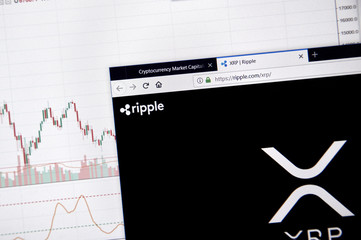A heated standoff between two of the biggest names in decentralized artificial intelligence has ended with a handshake instead of a courtroom battle.
Fetch.ai and Ocean Protocol, once partners in a high-profile AI token merger, have agreed to settle their conflict privately – a move that returns millions in disputed tokens and allows both sides to move forward.
A Deal That Ends Weeks of Tension
After weeks of public accusations, Fetch.ai CEO Humayun Sheikh offered Ocean Protocol a straightforward way out: return the tokens and the legal threats would vanish. According to sources close to the negotiations, Ocean accepted the proposal and will send back roughly 286 million FET tokens, worth an estimated $120 million, to Fetch.ai’s community pool.
The talks were reportedly mediated by GeoStaking, a validator node known within the Fetch.ai ecosystem, which played a key role in calming tensions and finalizing terms. With this, a potentially damaging legal confrontation was avoided – a rare outcome in an industry where disputes often escalate to drawn-out litigation.
Origins of the Conflict
The disagreement dates back to the Artificial Superintelligence (ASI) Alliance, launched in March 2024, which sought to merge three decentralized AI ecosystems = Fetch.ai, SingularityNET, and Ocean Protocol – under a single digital asset. The plan aimed to unify liquidity and development resources by converting each project’s token into FET, later to be rebranded as ASI.
But cracks began to show when Ocean Protocol abruptly withdrew from the alliance. Fetch.ai accused Ocean of transferring and allegedly liquidating large amounts of converted FET tokens – nearly 286 million units, according to Sheikh – without community consent. Ocean’s founder Bruce Pon denied wrongdoing, maintaining that the team acted transparently and that market volatility, not token movements, caused FET’s price decline.
Turning Conflict Into Cooperation
With the new deal in place, both projects are now expected to refocus on their shared ambitions – developing AI-powered decentralized systems and expanding their respective Web3 ecosystems. Insiders say the agreement could mark the first step toward repairing relations and possibly rekindling collaboration between the two.
The decision to settle privately also reflects growing maturity within the blockchain sector, where public disputes can quickly erode investor confidence. Analysts note that this outcome contrasts sharply with previous token controversies that have dragged on for months and resulted in fragmented communities.
Looking Forward
The settlement effectively closes one of the most talked-about feuds in the decentralized AI world. For Fetch.ai, reclaiming the disputed tokens strengthens its position as it continues building the ASI framework. For Ocean Protocol, avoiding a court battle helps preserve credibility while allowing the team to double down on data-focused infrastructure.
Though both sides have refrained from celebrating publicly, the outcome signals a pragmatic shift: instead of letting conflict derail innovation, two ambitious AI pioneers chose cooperation – an uncommon yet promising direction for a rapidly evolving sector.
The information provided in this article is for educational purposes only and does not constitute financial, investment, or trading advice. Coindoo.com does not endorse or recommend any specific investment strategy or cryptocurrency. Always conduct your own research and consult with a licensed financial advisor before making any investment decisions.
AuthorRelated stories
Next article
Source: https://coindoo.com/fetch-ai-ocean-protocol-feud-ends-with-token-return-agreement/


